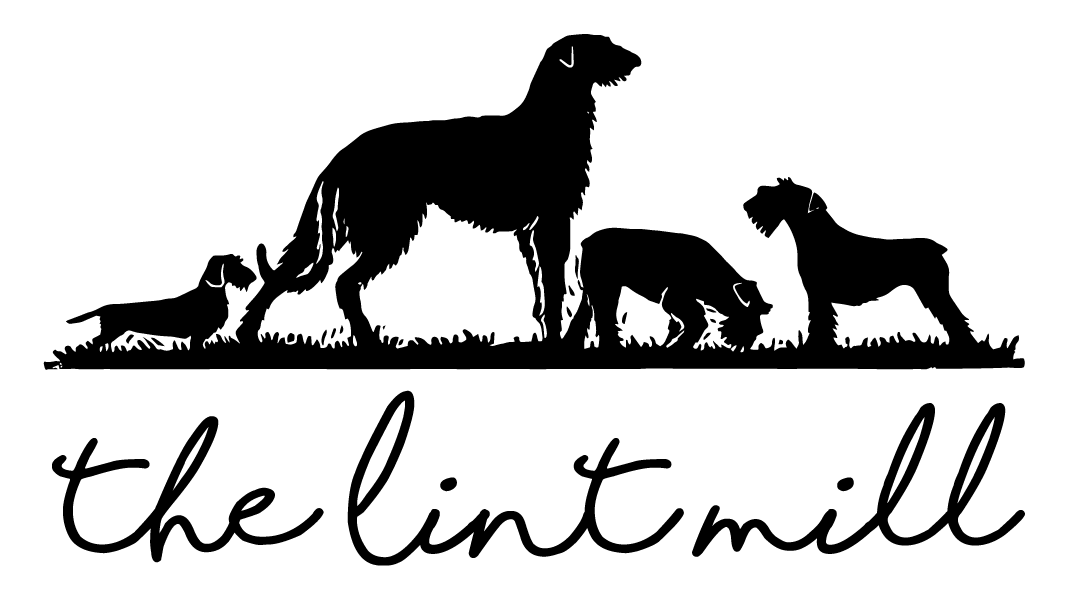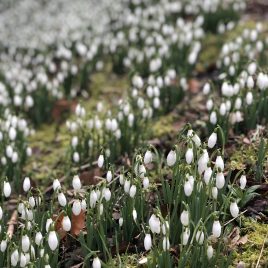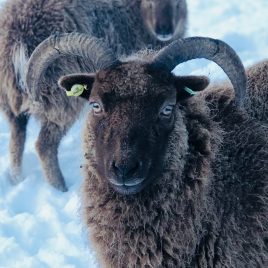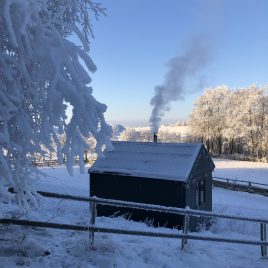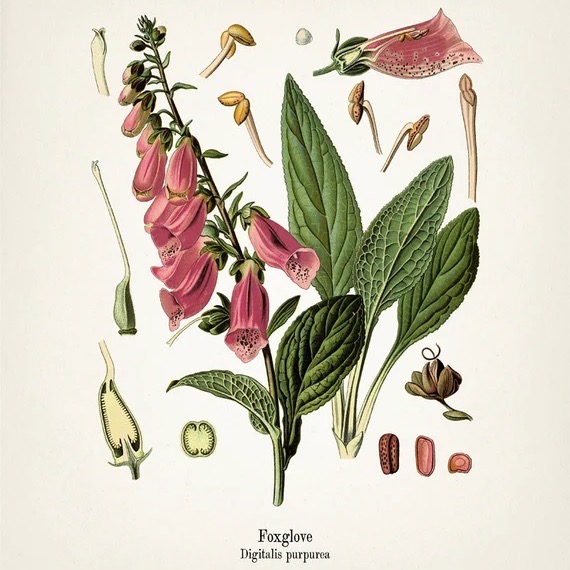
Stories and Survival
It’s at this time of year that I start to wander round the cottage garden looking for signs of which border perennials have survived the winter. I dust off my shaky Latin and begin my little memory game of intoning the botanical plant names, ‘Lysimachia, Filipendula, Alchemilla Mollis, Aconitum, Cephalaria Gigantium, Digitalis’, and so on. Every winter I forget them all, every spring I re-learn them. So I was curious when listening to ‘Orwell’s Roses‘ by Rebecca Solnit (featured in our ‘What We’re Reading‘ section this month) when she pointed out Orwell’s opinions on the of use of Latin words and her relating of this to a loss of our more meaningful ‘common’ names for things.
It sent me back to the source, to Orwell’s 1946 essay, ‘Politics and the English Language’, where he writes,
‘Bad writers, and especially scientific, political, and sociological writers, are nearly always haunted by the notion that Latin or Greek words are grander than Saxon ones.’
and makes me wonder if my determination to learn the Latin names has to do with them sounding ‘grander’, somehow more knowledgable and therefore making me feel ‘grander’, more knowlegable, making me a more ‘legitimate’ gardener.
Every flower has a story and their ‘common’ names often hold that story. Take ‘Foxglove’ for example. The name doesn’t derive from the flower looking like gloves for foxes to wear but from the original ‘folks-glove’ which comes from the medieval belief that fairy folk who dwelt in the forests and woody glades would use the petals to keep their hands warm in winter. Of course, the Latin Digitalis relates to digitus meaning finger so there is a connection between the Anglo Saxon and the Latin in this case.
These stories are important survival mechanisms for our understanding that we are fully part of wider nature. The loss of these names leads to a loss of the stories and a loss of the stories leads to a loss of the thing itself. A survey conducted by Plantlife in 2017 revealed that less than half of young people could name a bluebell and hardly any could identify a red clover. The Oxford Junior Dictionary caused outrage when it dropped nature-based nouns such as buttercup and conker in favour of the more widely used blog and chat-room. This loss inspired the wonderful and beautiful book ‘Lost Words‘ by Robert McFarlane and Jackie Morris. The Lost Words is a unique illustrated collection of spell-poems to re-wild the language of children. It is an important book. As Robert McFarlane says, ‘We find it hard to love what we cannot give a name to. And what we do not love we will not save.’
So for the sake of stories and survival, it’s Anglo-Saxon nouns all the way for me from now on…
‘Loosestrife, Meadowsweet, Lady’s Mantle, Monkshood, Giant Pincushion, Foxglove…‘
